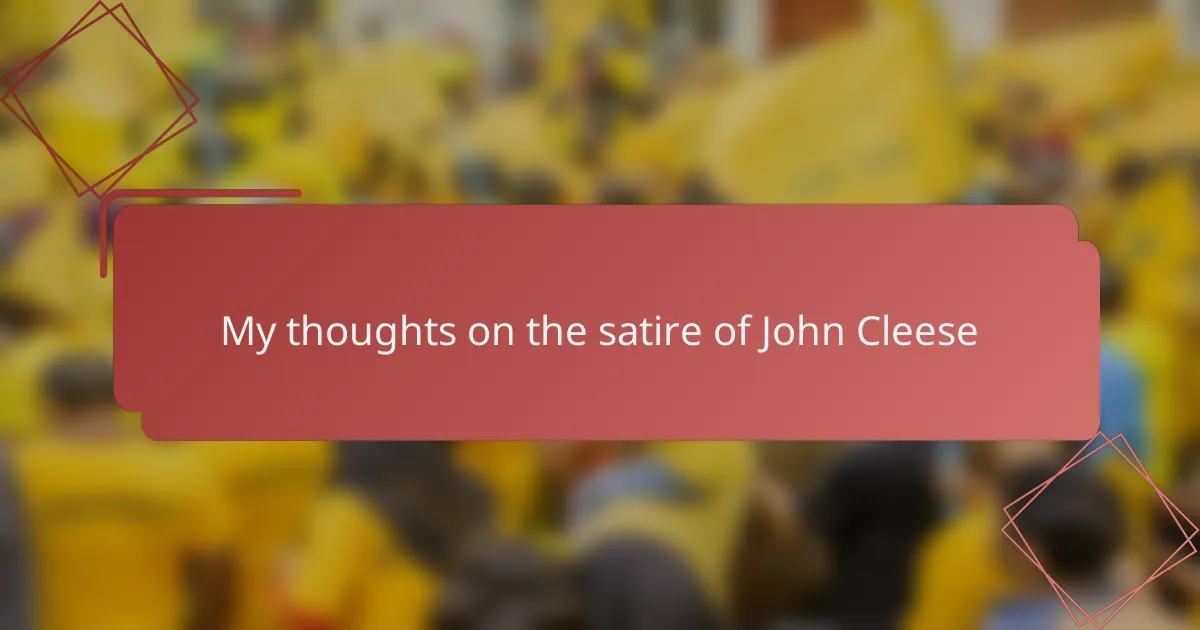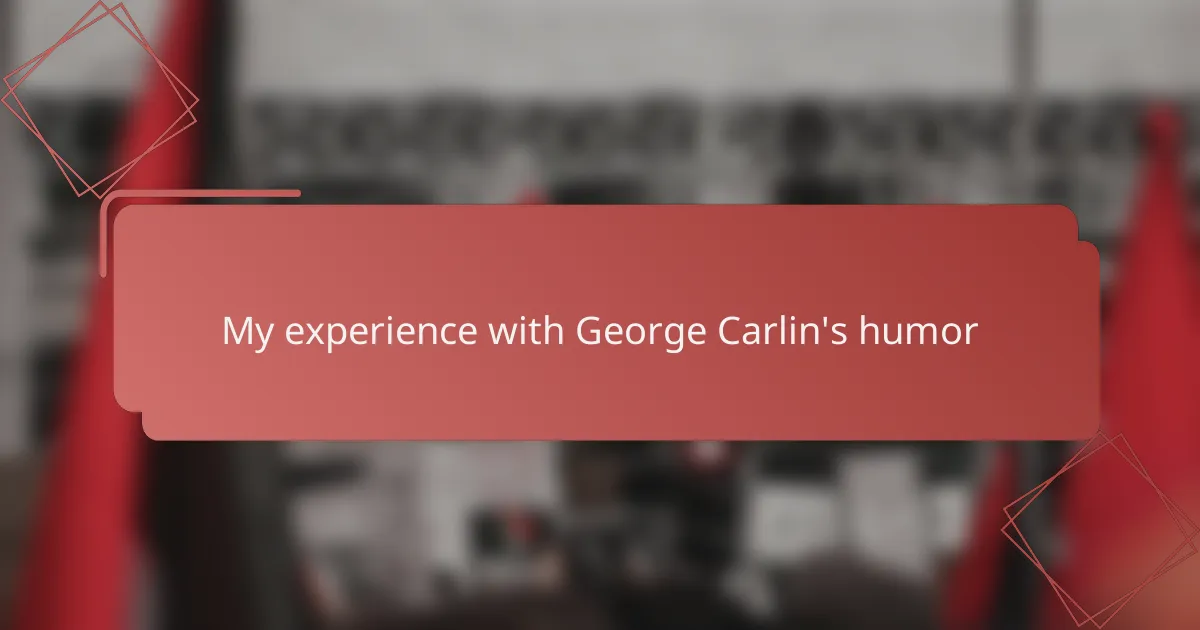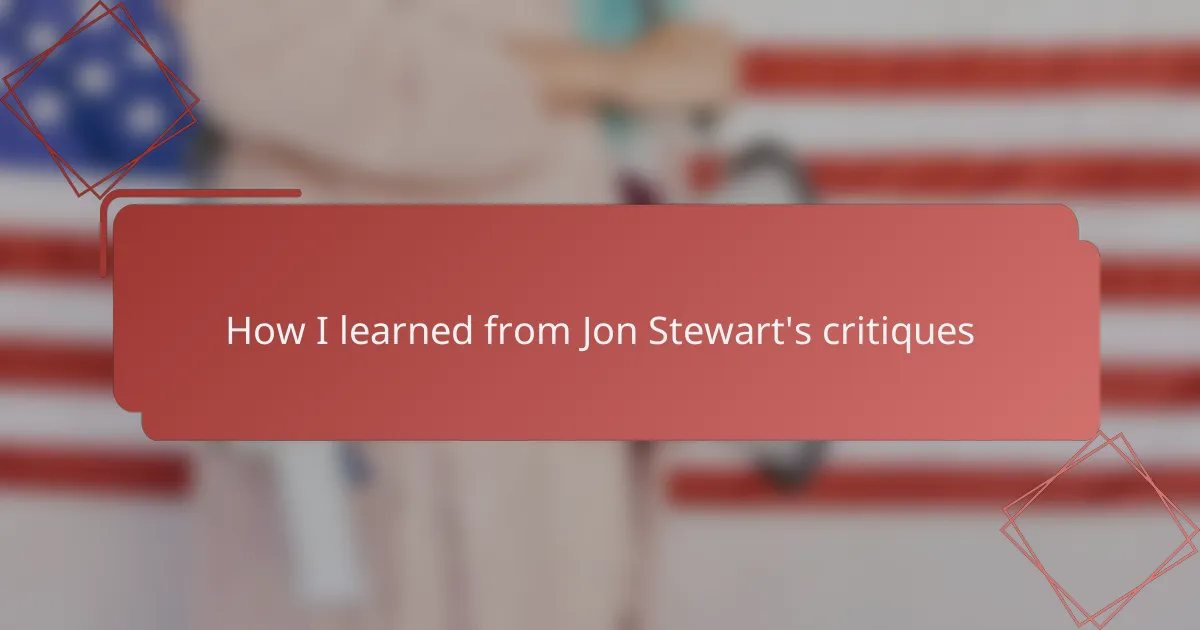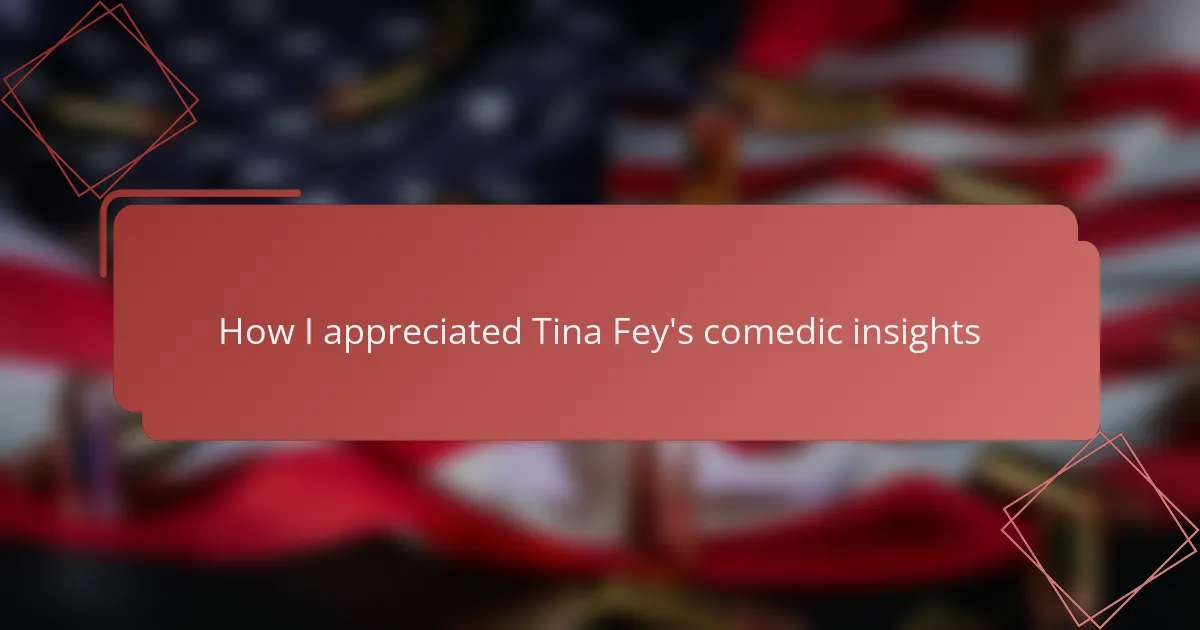Key takeaways
- Political satire blends humor and critique, serving as a mirror to societal flaws and encouraging critical thought.
- John Cleese’s unique style combines highbrow wit with relatable absurdities, prompting self-reflection and awareness through laughter.
- Effective satire balances subtlety with accessibility, engaging audiences without alienation while exposing deeper truths.
- Cleese’s work illustrates that satire can be entertaining and transformative, urging people to reconsider their roles in the political landscape.
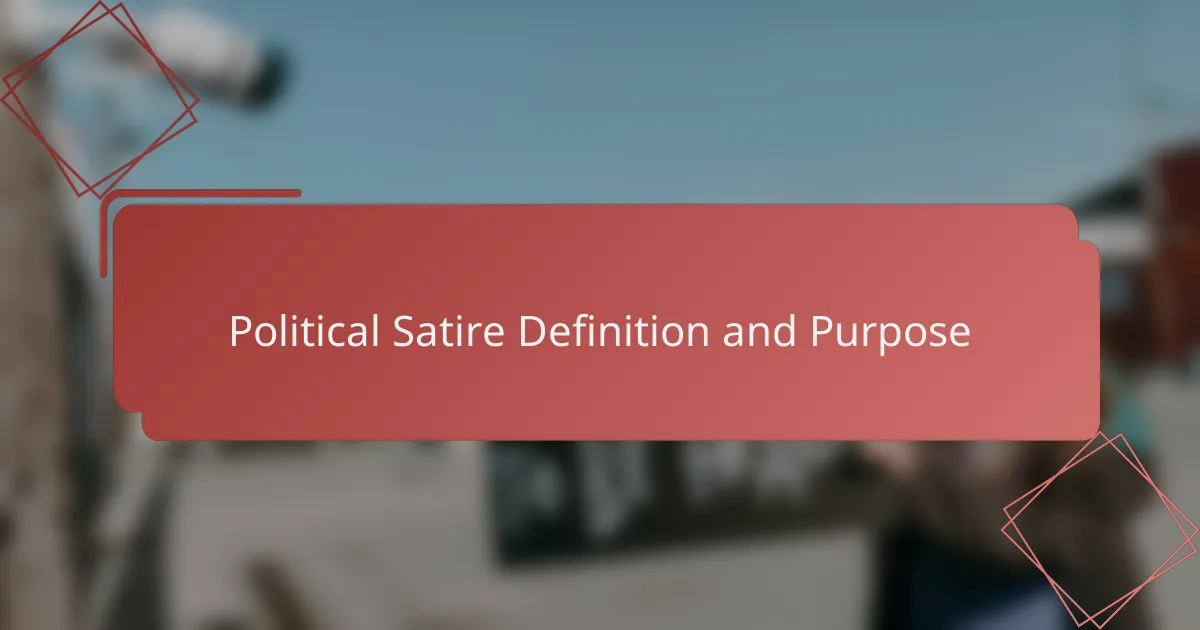
Political Satire Definition and Purpose
Political satire, to me, is a unique blend of humor and critique aimed squarely at the powers that be. It’s not just about making people laugh; it’s about using wit to expose the absurdities and contradictions within political systems. Have you ever caught yourself laughing at a sketch, then pausing to think, “Wait, that’s exactly what’s wrong with this situation”? That moment is where satire truly hits home.
From my experience, satire serves a crucial role as a mirror held up to society’s flaws, reflecting issues in a way that’s both accessible and thought-provoking. It challenges authority without the heaviness of serious debate, making complex ideas easier to digest. I’ve often found that satire can stir emotions—frustration, amusement, even anger—but ultimately it pushes us to question and, hopefully, demand better.
Why do we need political satire? Because it keeps political discourse lively and honest in a world that too often feels mired in spin and silence. It’s a form of expression that empowers ordinary people to confront injustice through laughter. When satire is done well, it feels less like mockery and more like a call to wake up and pay attention.
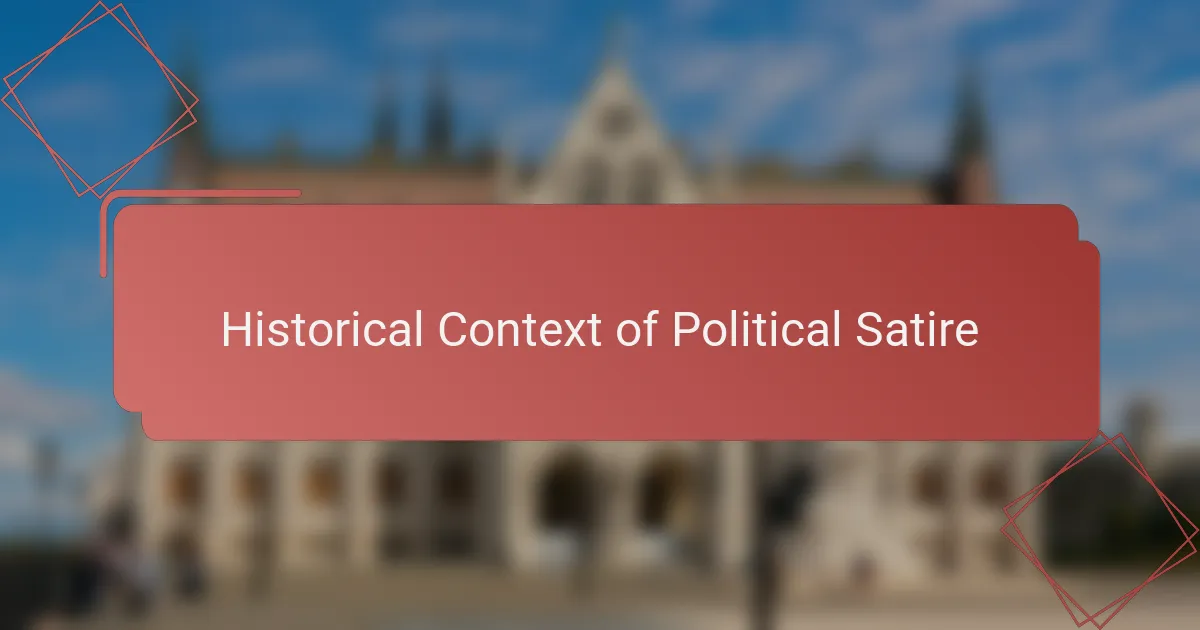
Historical Context of Political Satire
Political satire isn’t a new invention; it has roots tracing back to ancient times when playwrights like Aristophanes used sharp wit to critique Athenian politics. I find it fascinating how, even centuries ago, humor was wielded as a tool to confront those in power without facing direct repression. Doesn’t that tell you something about the enduring human need to question authority through laughter?
Throughout history, satire has adapted to the political climate of its era, whether in pamphlets during the Enlightenment or cartoons in modern newspapers. From my viewpoint, this evolution shows satire’s resilience—it bends but doesn’t break under pressure. I remember reading 18th-century satirical works and feeling a direct connection to those voices who dared to speak truth to power despite the risks.
Thinking about this, I wonder how satire manages to stay relevant across vastly different societies and political systems. In my experience, it’s because satire taps into universal frustrations and absurdities, making people laugh while nudging them toward critical thought. That blend of entertainment and enlightenment is what has sustained political satire through the ages.
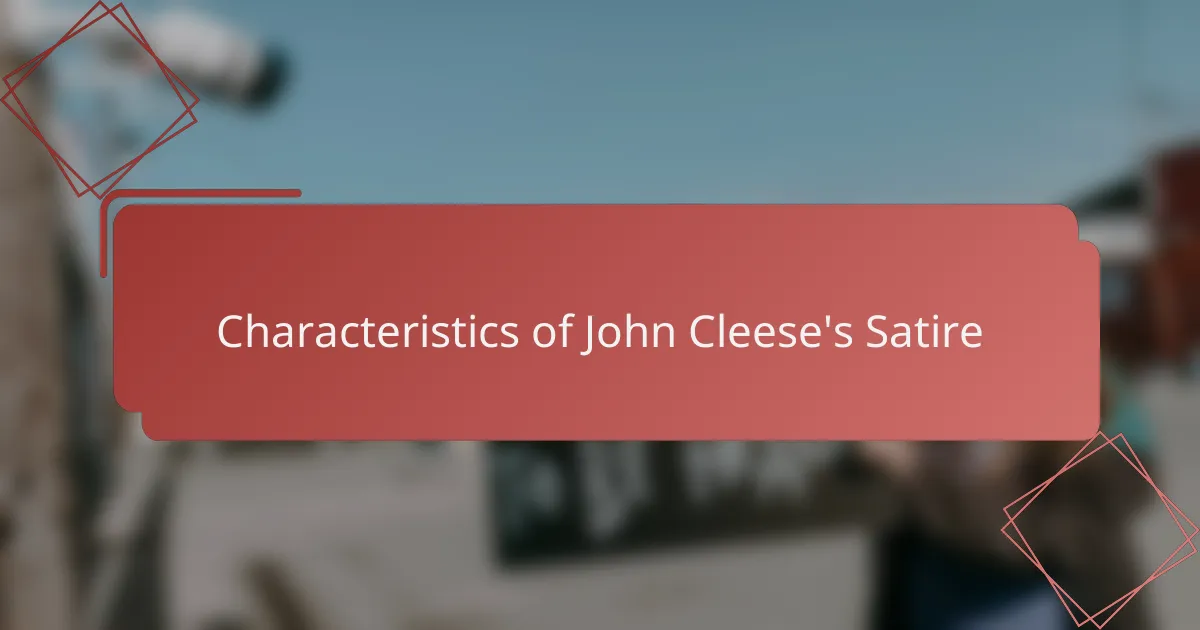
Characteristics of John Cleese’s Satire
John Cleese’s satire often strikes me as brilliantly intellectual but never aloof. He has this knack for blending highbrow wit with everyday absurdities, making the political seem painfully relatable. Have you noticed how his sketches make you chuckle first, then gradually sink into a reflective silence? That’s the power of his style—it gently pulls you from laughter to critical awareness.
What I find particularly striking about Cleese’s satire is his use of exaggeration paired with calm, almost deadpan delivery. This contrast creates a tension that highlights the ridiculousness of political behaviors without shouting. It’s like he’s inviting you to join him in a knowing nod, acknowledging just how ludicrous the situation really is, yet doing so with a subtle grace.
From my perspective, Cleese doesn’t just mock politics for the sake of humor—he employs satire as an intellectual mirror, reflecting our collective follies in a way that’s both entertaining and discomfortingly honest. When I watch his work, I’m reminded that laughter can be a powerful tool for awakening, encouraging us to question not only politicians but also ourselves.
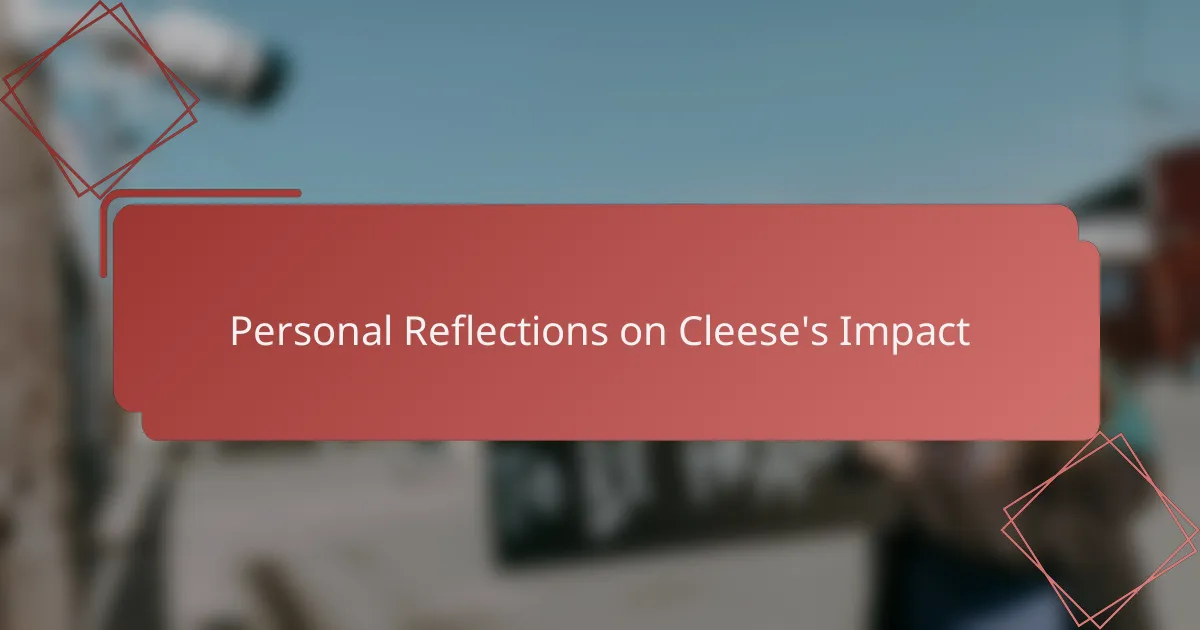
Personal Reflections on Cleese’s Impact
John Cleese’s impact on me goes beyond just entertainment; his satire feels like a nudge to see the world more clearly. I remember watching one of his sketches during a tough political moment and feeling this strange mix of amusement and frustration—it was as if Cleese was holding up a mirror not just to the politicians, but to my own complacency. Have you ever experienced that sudden awareness sparked by laughter?
What really stands out is how Cleese manages to blend humor with a kind of intellectual honesty that challenges me personally. His satire doesn’t let you off the hook; it makes you think, “Am I part of this absurdity too?” That uncomfortable self-reflection is, in my opinion, the hallmark of truly effective political satire. It’s not just about pointing fingers but about inviting us all to look inward.
Honestly, Cleese’s work has shaped the way I view satire’s potential as a force for change. His unique style has taught me that humor can be sharp and insightful without losing kindness or nuance. Watching his sketches, I often find myself laughing and then pausing to consider what that laughter really means—what uncomfortable truths lie beneath the jokes. Isn’t that the real power of his satire?
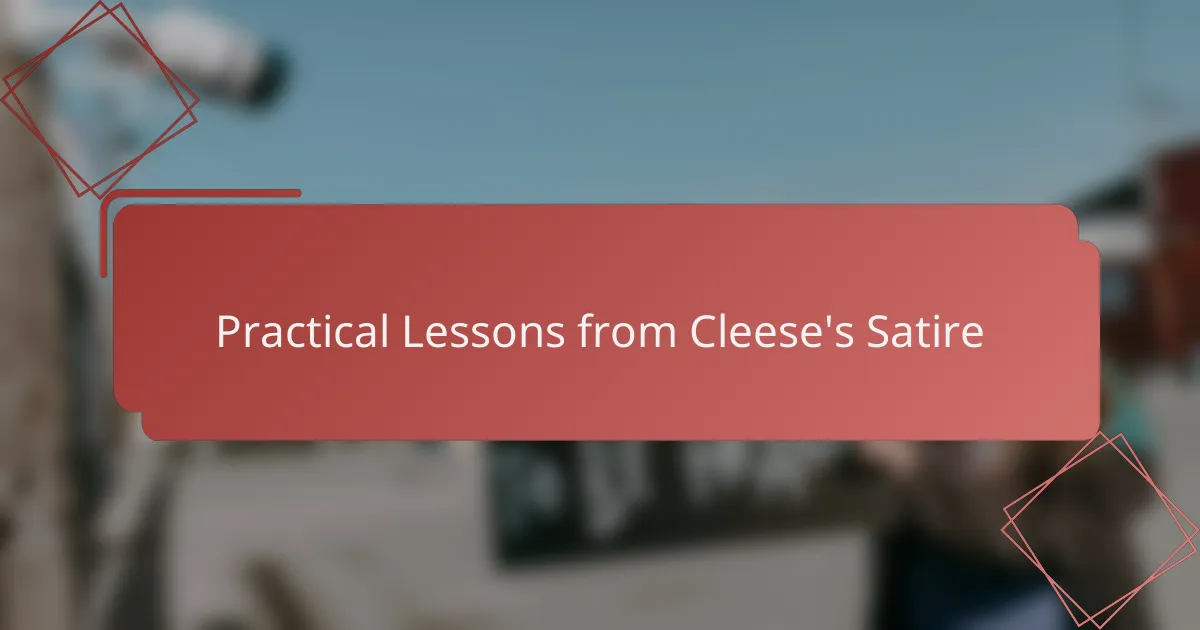
Practical Lessons from Cleese’s Satire
When I consider the practical lessons from Cleese’s satire, one thing that stands out is the importance of subtlety. Rather than hitting you over the head, his humor sneaks in through clever exaggeration and calm delivery, making the critique feel less like an attack and more like an invitation to think. Have you ever found yourself laughing along, only to realize moments later that the joke has exposed a deeper truth? That shift is where practical satirists can learn from Cleese.
Another lesson I’ve taken to heart is the balance between wit and accessibility. Cleese’s satire doesn’t rely on inside jokes or obscure references—it connects with everyday experiences, which, in my opinion, makes the political critique more relatable and memorable. When I’ve tried to use satire myself, I’ve noticed how important it is to keep the audience engaged through humor that resonates with their own realities, just like Cleese does so well.
Finally, I think Cleese teaches us that satire can be both entertaining and transformative without becoming cynical or bitter. His work encourages reflection without alienation, which I find to be a rare and valuable skill in political commentary. Isn’t there something refreshing about satire that makes you laugh while also urging you to reconsider your own role in the absurdity? For me, that delicate balance is the practical gold standard.
